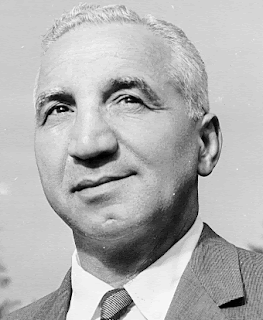
Sept. 1 – vs. Bucknell (L, 28-19)
Patriot League wins have always been special for mid-major teams, including Duquesne, but the success that the Dukes have had over the last handful of years against teams like Bucknell has made them somewhat commonplace… not expected but not extraordinary either. Bucknell was anything but an extraordinary team in 2007.
In fact, the Bison beat only three of 11 opponents this year -- Duquesne, Marist and Fordham. The Fordham win was Bucknell’s most impressive, but the game was meaningless for the already-postseason-bound Rams. This is a game that the Dukes should have won. It’s time to start beating football teams from Bucknell. 0-1 (0-0).
Sept. 15 – at Brown (L, 28-17)
As tough as Patriot League opponents can be for mid-major teams to beat, Ivy League opponents are even tougher. If Brown had not won a game in a year, Duquesne would still not be expected to win. Duquesne was in this game, so give Schmitt and the Dukes gridders some credit here. 0-2 (0-0).
Sept. 22 – at Sacred Heart (W, 30-23 OT)
Sacred Heart Football has been a very beatable program for the last several years. This year was no exception. The 2007 Pioneers finished 3-8. One of those eight losses came against Duquesne. Not a whole lot else to say here. It did take overtime, but the Dukes got the job done this week. 1-2 (0-0).
Sept. 29 – vs. Frostburg State (W, 37-10)
A gimme game. Duquesne was forced to schedule this tilt when St. Peter’s College dropped varsity football after the annual Dukes-St. Peter’s game had already been scheduled.
Given that Duquesne would only be playing nine games in 2007 if this were made into a bye week, AND MORE IMPORTANTLY, this was the Dukes’ Homecoming Saturday, Frostburg State had to show up and lose. They did, and everyone was happy. The Dukes padded their stats and evened their record. A loss to Frostburg State—an NCAA Division III team—would have been the worst in university history. It didn’t happen. Thank God. 2-2 (0-0).
Oct. 6 – at Marist (W, 31-21)
Duquesne was playing this game on the road in front of the largest crowd in Marist Football history. Make no mistake; the 2007 Red Foxes were bad (3-8), but Marist always gears up for the Duquesne game. This was certainly not a gimme, and the score made the game look closer than it actually was. Good win. Good conference win. 3-2 (1-0).
Oct. 13 – at St. Francis (Pa.) (W, 24-17)
If the Dukes were playing for an at-large bid to the NCAA Division I Championship -- not that realistic this year -- their schedule certainly wouldn’t help them. In fact, their schedule even hurt their chances of winning their second Sports Network Cup. The 2007 St. Francis (Pa.) squad was the sixth-straight poor team that the Dukes faced this year.
But a win is, yes, a win. It’s always good to beat another local team, especially one that Duquesne probably competes for recruits with. 4-2 (1-0).
Oct. 20 – vs. Robert Morris (W, 17-14)
Speaking of beating local teams, it doesn’t get better for Duquesne than beating Robert Morris. The best win of 2007, especially considering that the Colonials finished 4-6 this year with a very ambitious schedule. 5-2 (1-0).
Oct. 27 – at Iona (L, 28-23)
Ouch. Duquesne would need help again if it was to repeat as league champions/co-champions. Give credit to Iona. Have the Gaels finally caught the Dukes?
Indeed, it will certainly be interesting to see what happens to Iona Football with the Metro Atlantic Athletic Conference Football League all but officially disbanded at this point. This was another tough loss to swallow. Worst of the year. Worst in a while. 5-3 (1-1).
Nov. 10 – vs. La Salle (W, 51-8)
The season wasn’t over. Give the Dukes players and coaching staff a lot of credit here for responding to a lot of criticism by getting back to the business of demolishing fellow MAAC teams.
Granted, La Salle –- who finished 2007 0-10 –- was the perfect medicine for Duquesne, but the Dukes could easily have unraveled after the Iona loss and a bye week to think about it. They didn’t, and for the second year in a row, fortune shined on Duquesne. Iona blew sole possession of the MAAC crown by losing to Marist this week. A tri-championship of a four-team league is certainly bittersweet, but it could have been worse.
The championship streak stays intact, and Duquesne will look to extend it next year with a Northeast Conference championship. 6-3 (2-1).
Nov. 17 – at Monmouth (L, 31-20)
This game shouldn’t have been meaningless for Duquesne. It had a chance to equal its win total of last season and avoid the program’s lowest win total in a season since 1994 (6-4). But, the Dukes lost.
This game was meaningless for Monmouth, but they proved to be, frankly, the better team. 6-4 (2-1).
Looking Ahead: The streak somehow survives, but next year will bring more challenges. Recruiting, player responsibility, coaching and off-season training will all need to improve for Duquesne to survive in the NEC, let alone compete for the league title.
With NEC Football most likely soon to earn an automatic bid to the NCAA Division I Championship for its champion, the competition for the chance to win an undisputed NCAA Division I Football championship will be fierce in the conference.
Here’s hoping that the Dukes can handle it. Shoo shoo. Rah rah.
(Image: Bruce Hocker, Copyright Duquesne University)





